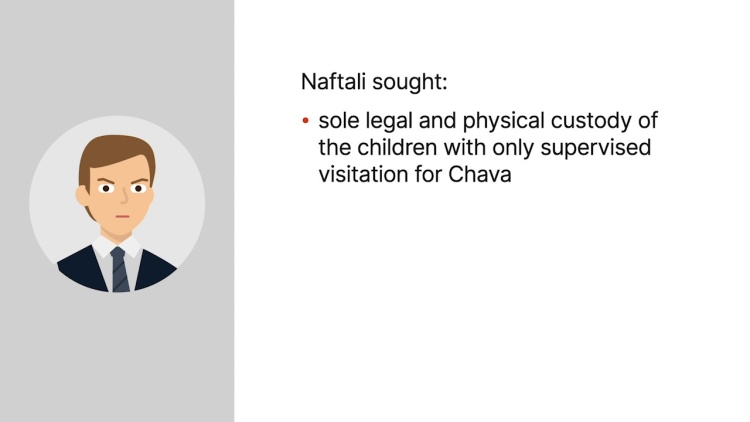Weisberger v. Weisberger
New York Supreme Court, Appellate Division
60 N.Y.S.3d 265 (2017)

- Written by Sean Carroll, JD
Facts
Naftali Weisberger (plaintiff) and Chava Weisberger (defendant) divorced with three children. Chava was the children’s primary caretaker. Upon divorce, the parties agreed to joint custody, with Chava having physical custody. With respect to the children’s religion, the parties agreed that the children would be raised Hasidic and that Naftali would choose the children’s school. The agreement provided that Naftali would pay child support, but he never did. Further, Naftali did not fully exercise his visitation rights. Three years after the divorce, Naftali moved for modification of the agreement on the grounds that Chava violated or caused the children’s violation of the practices of Hasidic Judaism in many ways, including the way the children dressed, eating non-Kosher food, cutting the children’s hair, and speaking English in school. Naftali sought custody and specific enforcement of the religious clause in their agreement. Testimony at trial indicated that Chava had the closest relationship with the children. The New York Supreme Court awarded Naftali sole legal and residential custody of the children and awarded only supervised visitation to Chava. In doing so, the court found that the parties’ initial agreement on the religious upbringing of the children was the key factor in determining custody. The court also found that the parties’ agreement required Chava to practice Hasidic Judaism in front of the children. Chava appealed.
Rule of Law
Issue
Holding and Reasoning (Per curiam)
What to do next…
Here's why 899,000 law students have relied on our case briefs:
- Written by law professors and practitioners, not other law students. 47,000 briefs, keyed to 994 casebooks. Top-notch customer support.
- The right amount of information, includes the facts, issues, rule of law, holding and reasoning, and any concurrences and dissents.
- Access in your classes, works on your mobile and tablet. Massive library of related video lessons and high quality multiple-choice questions.
- Easy to use, uniform format for every case brief. Written in plain English, not in legalese. Our briefs summarize and simplify; they don’t just repeat the court’s language.





